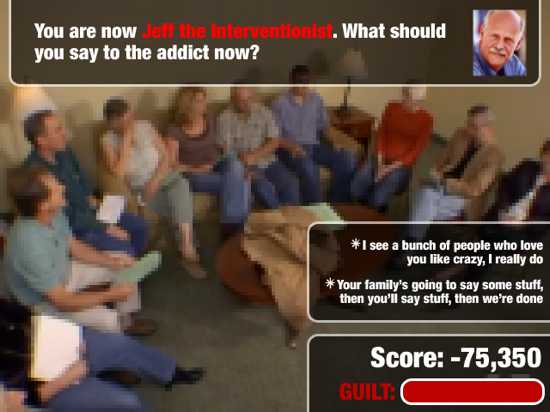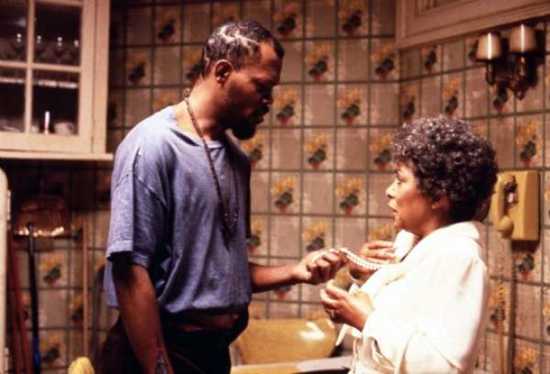 Weird Stuff
Weird Stuff  Weird Stuff
Weird Stuff  Animals
Animals 10 Inspiring Tales of Horses Being Human
 Mysteries
Mysteries Top 10 Haunting Facts About the Ghost Ship MV Alta
 History
History 10 Surprising Stories About the Texas Rangers
 Humans
Humans 10 Philosophers Who Were Driven Mad by Their Own Theories
 Miscellaneous
Miscellaneous 10 Video-Game-Worthy Weapons and Armors from History
 Weird Stuff
Weird Stuff 10 Psychics Who Accurately Predicted Wartime Events
 The Arts
The Arts 10 Pieces of Art Inspired by a Broken Heart
 Health
Health 10 Science Fiction-Sounding New Medical Treatments
 History
History 10 Surprising Facts About the Father of Submarine Warfare
 Weird Stuff
Weird Stuff 10 Times Real Laws Were Based on Bizarre Hypotheticals
 Animals
Animals 10 Inspiring Tales of Horses Being Human
 Mysteries
Mysteries Top 10 Haunting Facts About the Ghost Ship MV Alta
Who's Behind Listverse?

Jamie Frater
Head Editor
Jamie founded Listverse due to an insatiable desire to share fascinating, obscure, and bizarre facts. He has been a guest speaker on numerous national radio and television stations and is a five time published author.
More About Us History
History 10 Surprising Stories About the Texas Rangers
 Humans
Humans 10 Philosophers Who Were Driven Mad by Their Own Theories
 Miscellaneous
Miscellaneous 10 Video-Game-Worthy Weapons and Armors from History
 Weird Stuff
Weird Stuff 10 Psychics Who Accurately Predicted Wartime Events
 The Arts
The Arts 10 Pieces of Art Inspired by a Broken Heart
 Health
Health 10 Science Fiction-Sounding New Medical Treatments
 History
History 10 Surprising Facts About the Father of Submarine Warfare
11 Ways to Handle Substance Abuse
For as long as there have been mind altering substances, there’s been a certain percentage of the population who wind up abusing them. With variety and availability at unprecedented levels, substance abuse is not uncommon. The resultant popular more shift from criminal justice matter to public health problem is a welcome departure from a puritanical morality unhinged from reality. While the related political tides are coming in, statistically speaking, most of us are going to face this question on personal level. When a loved one develops a substance abuse problem, how should it be addressed?

And do not confront them directly. Most people will feel compelled to direct action, and want to do something immediately. You must resist this urge. In much the same way a funeral is not for, and of no benefit to the dead, the only thing an invention accomplishes is to stroke the collective ego of everyone involved. This way all the participants can go home, and sleep soundly telling themselves they’ve done everything they possibly could. Which is of course complete hogwash. The intervention is just a quick fix panacea for an attention deficit disorder culture and will most likely alienate the subject. Do you really think that everything will be wrapped up neat & tidy after an hour of making someone feel like a piece of garbage? This isn’t television, and in the real world things work far differently. Accomplishing anything meaningful takes hard work, dedication, time and patience. There are no short cuts here. If you really care about the person, you must understand that it’s going to take time, it’s going to be difficult, and there will be setbacks

If you’ve managed not to barrage the subject with a fusillade of guilt (aka, stage an intervention), then you have a slight advantage, and some time to come to terms with this new revelation. Information can be a valuable and/or powerful tool. You know, but they don’t know you know. You’ve just bought yourself some time to think about the relationship, get prepared, and adjust how you interact with this individual. Once they know that you know, they’ll most likely modify their behavior and may even lash out at you, so do this privately. Adjust how you treat this person to match how they’ve treated you. Think about it. Has this person betrayed you? Stolen from you? Lied to you? Worse? How would you interact with a stranger who’s done all that to you? Keep in mind that this persons behavior is being guided by their addiction. This may be the most difficult task on the list, but also the most important because unless you re-frame your relationship dynamic, you probably won’t be able to accomplish the rest. And remember, mums the word: Loose lips sink ships.

And STICK TO IT. No matter what you do, you can not force another person to change. Change comes from within, and a person is only going to do this if they decide it’s in their best interest to do so. That being said, there are subtle methods of influence that can be applied and vary depending on the type of relationship. Your plan should include these methods, executed incrementally. The first part of any plan is to determine exactly what it is you’d like to accomplish, then work backwards from there to figure out how to execute it. A good goal in this circumstance would be “Get them off drugs & help them put their life (back) together.” Now, what can you do that would be effective?

The first lesson in any emergency responder training is that you have to protect yourself first. It’s drilled in for a very important reason: if you don’t protect yourself, you can’t render assistance to others in need. Same goes of this situation. Measures that may be considered extraordinary must be taken, lest you place yourself, or your well-being in jeopardy. Herein lies the inherent benefit of observing rule #1: you can make preparations without arousing suspicion. Gather up all important documents and materials: wills, insurance policies, deeds, birth certificates, financial records, etc. and store them in a safe location inaccessible to the subject. A safety deposit box is a good idea. Assume the subject has copies of keys for all your property that require one. Change the locks on all your real estate. Store your vehicle(s) securely, or better yet, sell them and get new ones. Your computer has probably been compromised with key stroke tracking software. Get it scanned, or better yet get all new equipment. Get a security system and/or security cameras that record to a remote server. With current technology, this can be done very easily & inexpensively. Change the passwords, access codes and pin numbers on all accounts with sensitive content – email addresses, online banking, paypal, etc. Just do a complete sweep. If you don’t already know them, go down to the local police department, introduce yourself, and explain the situation. Chances are, you’ll be seeing them soon. If they have advance warning about the situation, you’ll be a stronger position. Finally, change your will so the subject doesn’t stand to inherit a windfall. If necessary, place your estate in a carefully controlled trust. You can even put conditions on it that would incentives positive behavior.

For your own emotional defense you’re going to want to withdraw from contact at first. That means don’t call them, don’t go visit, and don’t make plans. This has the added benefit of making it easier to Re-frame the Relationship Dynamic. It’ll probably take them a little while to catch on, and hopefully you’ll have completed the action plan and self-protection measures by then. Once they do reach out to you, screen all calls and don’t return them for a day. Then, only stay on the phone for 10 minutes or less. This is going to make them uncomfortable – and that’s the whole point. If they start to think the relationship is in jeopardy, or changing, it will put them off balance. What’s really happening here is you’re taking control of the relationship. By making them come to you, you’re sending a powerful message that you’re in charge, and the relationship will be on your terms. You’re empowering yourself – for yourself, and perhaps more importantly, communicating this to the loved one. Once you’re comfortable running the relationship, you can expand to in person get-togethers, but these must always be on your terms, and never dependent on their participation. You’re going to do what you want to do, but it would be great to have them along. Expect them not to show up, and don’t be, or at least don’t communicate, any disappointment at their non-participation. But next time you speak make a deliberate point to mention that it was a great time.

This is just about the only thing you can do that might be able to influence the subject. Stop doing anything that enables them to continue their self-destructive lifestyle. If you’re providing them a place to live, stop. Put them out. You’re probably worried that they’ll wind up on the street, but if they do it’s by their own choice. Homeless shelters and housing projects do exist. Not having a roof over your head is a powerful incentive to find one. They might call you up and say that they’re hungry. Tell them to go find a soup kitchen, or sign up for food stamps. If they say their clothes are dirty, or worn out, just laugh and hang up. Everyone knows about laundromats and thrift stores. Everything you’ve done for them has been extremely generous, and if they’ve grown comfortable by it, you have the power to make their life uncomfortable. Discomfort is one of the most powerful motivators, and one of the originally stated goals was for this person to be self-sufficient. Emotional outbursts produce no substantive results. This can. But they have to do it for themselves.
Added bonus: any parasitic associates will soon be gone when the subject finds himself living in a musty basement apartment eating government cheese and cut off from an inheritance.

Do NOT give the subject anything, without receiving something in return. If they call up begging and crying about how hungry they are, make them squirm a little bit before offering to have a pizza delivered, on the condition that they attend a Narcotics Anonymous meeting. You’ll probably have to stake out the meeting spot to verify this as it is anonymous after all. They probably won’t go, so put that one in the bank, and permit no further exchange until they make good on their word. Hold them accountable, and treat them like a stubborn child. Use the word reciprocity a lot. And explain to them what it means. Frequently. For more information, look up Operant Conditioning. It is effective regardless of age.

You’re not the only one who’s going through this. Countless others have gone before. It is a tremendously arduous experience which is only made harder if you try to go it on your own. There’s nothing to be ashamed of, and there’s no reason you can’t reach out to others. They’ve been where you are now, know how traumatic it is, are glad to help, and can be your best resource. They can help you stick to your plan when the going gets tough, or even advise based on their experience. Attend an Anonymous meeting, and listen to what they’re saying. Each and every addict in that room once had people that cared about them. And they are the contemporaries of your loved one. Join a group. That’s what they’re there for.
A special note of caution: be selective in whichever group you chose to attend because many are illegitimate, ineffective, or have pathological ulterior motives. One such group goes under the name “Narconon” and should specifically be avoided at all costs. This group is a front for the Cult of Scientology used to recruit new members during a moment of weakness (recovery) when they are highly suggestible. Duplicitously, they’ve taken a name that closely resembles that of a legitimate and effective organization, Narcotics Anonymous.

Search around on an online bookstore for some of the best regarded books on this topic, or take a recommendation from your support group. Read up on the topic. Learn all about it. The more you know, the more effective you’ll be at dealing with it. A trite little internet list just won’t cut it. If you’re serious about this, you’re going to have to do more.

Once the fallout has settled, and a new dynamic is established, let the person know that you’re willing to help them, so long as they’re willing to help themselves. Tell them that you love them, and want them to get clean, and straighten out their life. And you’re willing to help them. But only on your terms. They’re going to go through some rough patches along the way, and hope may be the only thing that gets them through it. Knowing there’s someone out there who cares.

This is not the end of the world, and it shouldn’t be the end of yours. Worse things have, and will happen. It’s normal to be upset, and scared, and angry; frustrated, disappointed, sad and depressed. If you didn’t run an emotional gamut, you’d be numb as a corpse. This is a terrible thing to happen, and while there’s only so much you can do for your loved one, there is one person you have complete control over. That’s you. The entire crux of this list has been about how to indirectly influence another by ones own behavior. If that person sees you living your life happily and contentedly, that may exert a positive influence. But you owe it to yourself not to let anthers misfortune ruin the rest of your life. Good luck.








